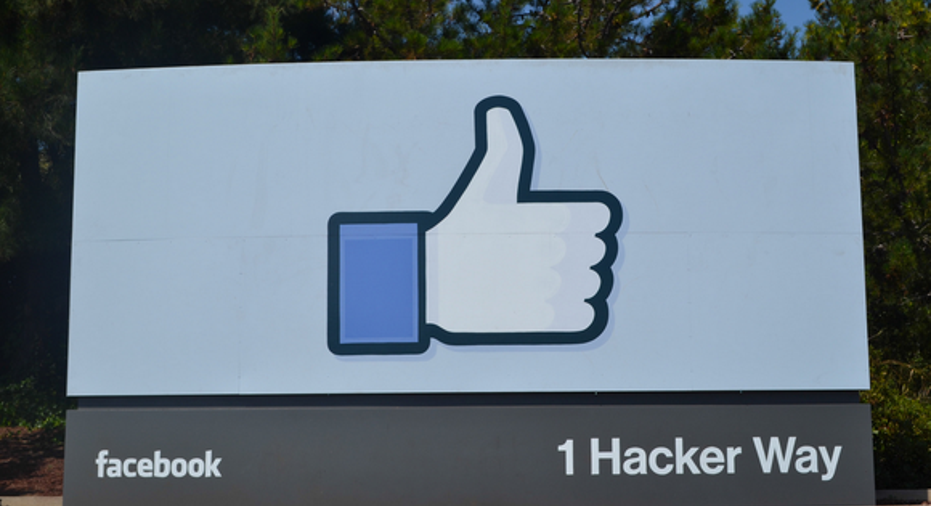Facebook Tunes Into Television's Market

Facebook might be coming to a bigger small screen.
The social network is developing an app for television set-top boxes, including Apple Inc.'s Apple TV, people familiar with the matter said, giving it a home for video content -- as well as a new vehicle for video advertising.
The app is one of several Facebook projects aimed at making it a "video-first" company that can compete for television ad dollars. The social giant has been marketing its live-streaming capabilities, testing a new video ad product and integrating more videos into Instagram, its photo-sharing app.
Facebook is also in discussions with media companies to license long-form, TV-quality programming, people familiar with the situation said. A set-top box app would be a natural way to distribute that "premium" content and make it accessible on TV sets.
Facebook is already the second-biggest player in digital advertising, after Alphabet Inc.'s Google. But the social-media giant said last November that its main source of revenue, the news feed, was running out of room for more ads.
As a result, executives warned that revenue growth would "come down meaningfully" starting in the middle of this year. Facebook is due to report its fourth-quarter earnings on Wednesday, and analysts expect revenue to have increased 46% -- the slowest rate of growth in five quarters -- to $8.5 billion, according to Thomson Reuters.
Tapping more of the $70 billion U.S. TV advertising market could help offset its growth plateau. Video ads command a premium over text- and image-based ads within the news feed. Though video ads already contribute to Facebook's growth, deep-pocketed advertisers still spend the bulk of their marketing budgets on television ads.
Facebook has competition from other tech companies. YouTube, part of Google parent Alphabet Inc., and Snap Inc.'s Snapchat are also angling to get more TV advertising. Google said last week that ads it sells on YouTube generally cost less than its search-engine ads. Snapchat is pushing more toward a content-licensing model, a move that media executives say Facebook has noticed.
Facebook started emphasizing video in 2014, reflecting the belief internally that video is becoming a central part of how people communicate. Late last year, some employees at Facebook started referring to the platform's future as a type of "mobile TV," one of the people said. The social network is hoping to cut into the time Americans spend watching live television -- around four hours a day on average, according to media measurement firm Nielsen.
Facebook's users world-wide spend an average of 50 minutes a day on its products, regardless of the type of content, according to the company.
The company's video priorities have evolved, from on-demand video to videos broadcast live, and now to higher-quality videos.
Facebook has been known for short-form video clips. But media companies say they are in talks with Facebook to provide it with long-form "TV-like" content upward of 10 minutes in length. That content could include scripted shows and sports and entertainment content created specifically for the platform, according to media executives familiar with the discussions.
Nearly every product team at Facebook is working to incorporate more video across its features and apps, according to people familiar with the matter. Last week, it began testing "Facebook Stories", a photo- and video- montage feature that is a carbon-copy of a popular feature on Instagram.
Facebook has vowed to avoid pre-roll video ads, the spots popular on YouTube, because it believes it would turn users off. Earlier this month, Facebook began testing "mid-roll" ads -- a format that recalls a typical TV spot -- in the middle of live videos, and plans to introduce them in all videos. The ads will be 15 seconds long, and will only appear after a video is played for at least 20 seconds, according to media executives briefed by Facebook.
Last week, Facebook also tweaked its news feed to boost the visibility of videos over 90-seconds long. The move could result in more advertising space for Facebook to sell, publishers briefed on the project said. Facebook has told publishers that it plans to share revenue from mid-roll ads with them.
A set-top box app would offer another, potentially more promising route for Facebook to seize a larger portion of TV budgets, the people familiar with its app development said. Facebook has been contemplating some version of a set-top box app for years, but the effort was revived last summer when Facebook executives decided to double-down on video for the second half of 2016.
The app would be a home for video content, including the original, premium content that Facebook currently is trying to attract from major studios, the people said. Facebook eventually would sell ads against that content, giving it another way to generate growth to offset the expected decline in ad growth in its core news feed.
"If there's good video content, you'll actually watch a couple thirty-second video ads," one person familiar with the efforts said.
Write to Deepa Seetharaman at Deepa.Seetharaman@wsj.com and Jack Marshall at Jack.Marshall@wsj.com



















